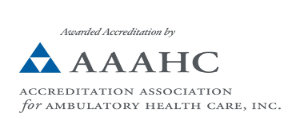×

Home
FAQ's
Procedures
Patient Forms
Patient Rights & Privacy
Contact Us
About Us

Commitment to Quality
Accreditation
Awards & Recognition
Memberships
Causes we Support
News
Commitment To Patient SatisfactionImportant Links
Bowel Cleansing Preps
Diets
Colon Cancer Screening
Disease Management
Physician & StaffInsurances Accepted
In-Network Employers
Billing & Benefits
Payment Options
Online Bill Pay13 Fallon Ave | Seaford, DE
13 Fallon Ave | Seaford, DE
-
|
|
|
|

Frequently Asked Questions
Procedure Preparation
Q. Will I be asleep during my colonoscopy or upper endoscopy?
A. Yes, you will be asleep during your procedure. An anesthesiologist will administer intravenous sedation that will keep you asleep, unaware of the procedure and comfortable. The anesthesiologist will continuously monitor your heart rate, breathing and level of sedation during your procedure. The sedation takes effect quickly and wears off quickly at the end of the procedure. Most patients don't remember any part of the procedure and wake up feeling rested.
Q. Will I experience any pain during or after my procedure?
A. No, most patients experience little to no pain during or after the procedure. Because you will be sedated during the procedure you will not be aware of any discomfort as a result of the procedure. Patients who have an upper endoscopy may burp briefing after the procedure. Rarely, a patient may experience some mild throat discomfort which quickly resolves. After a colonoscopy, most patients pass gas which is the normal way of releasing any air remaining in the colon after the procedure. Some patients experience mild to moderate abdominal cramping or "gas pains" after the procedure. Most of this discomfort is relieved with the passing of gas. Rarely, gas may be slow to pass and a few patients may continue to have some bloating and cramps for the remainder of the day. Before you are discharged, your nurse will give you advice about managing any discomfort you may have.
Q. Is it important to let the nurses and doctors know about any medications, vitamins, herbal products or supplements that I take?
A. Yes. You should always include any vitamins, herbal products, supplements, and over the counter medications in your list of medications. The reason for this is that some of these products can affect your body's blood clotting mechanism. It is very possible that the doctor will be removing a polyp or taking a biopsy of the inside of your intestinal tract during your procedure. When a polyp is removed or a biopsy is taken, the underlying tissue may bleed briefly, then a clot will form stopping the bleeding. Some medications and supplements interfere with the body's ability to form a clot putting you at increased risk of bleeding during or after your procedure. It is best to let the staff know ahead of time what medications and supplements you take so they can advise you when to stop taking them in preparation for your procedure.
Q. My colonoscopy preparation instructions say that my bowel movements will become "clear". How will I know if mine are clear enough for the procedure?
A. A good colonoscopy preparation is the most important part of a successful colonoscopy. The doctor will not be able to thoroughly examine the inside of your colon if there is any food, solid or liquid stool present. Clear bowel movements will not look like clear water. Clear means that you are no longer passing any solid or dark liquid stool, or a large amount of particles or sediment. Clear bowel movements will be a transparent liquid that may have a slight amount of color (usually the color of whatever liquid you have been drinking). There may also be a small amount of sediment or mucus in the clear liquid movement that quickly settles to the bottom of the toilet. If the water in the toilet is cloudy so that you cannot see the bottom, you are probably not clear. If you have any questions about whether your bowels are clean enough for the procedure, please let us know by contacting the Center or doctor.
Q. Why do I need a responsible driver to bring me to the Center and wait for me?
A. We will not do your procedure unless you have a responsible, licensed driver bring you to the Center and take you home after the procedure. The reason for this is that you will receive sedation for your procedure which will make you unable to safely and legally drive until the next day when the medication is no longer in your system. We highly recommend that your driver remain at the Center and wait in the reception area for you to be finished. The reasons for this are that your entire stay at the Center will only be approximately 2 hours in length and you will not be able to be discharged without your driver being present to sign your discharge papers. Also, most patients like to have their responsible driver present after the procedure to meet with the doctor and hear about the procedure results and discharge instructions. This is most possible if your driver remains at the Center. Our reception area is comfortable with a television, Wi-Fi connection, reading material and beverages for visitors. If you do not have transportation, please let the office know when you schedule your procedure. We may be able to help you arrange transportation, but you will still need a responsible person to come with you.
Q. When will I be able to eat after my procedure?
A. You will be able to eat and drink when you leave the Center after your procedure is finished. There are no restrictions as to what you may eat or drink except that we recommend that you do not drink any alcoholic beverages until the following day. Alcohol can potentiate the effects of the sedation you received for your procedure which can be dangerous. You can go back to eating your regular diet after your procedure but we suggest that your first meal be light. By this we mean do not overeat or eat foods that may create additional gas or distention such as heavy fried or fatty foods, concentrated sweets, or very spicy foods. As long as you tolerate your first meal, you can continue to return to your normal diet. If you experience an increase in gas and bloating, abdominal distention, nausea or vomiting, stop eating and try to pass any remaining gas. Resume taking fluids and lighter food when you feel better. If these symptoms do not resolve, please contact us at the numbers you were provided upon discharge.
Q. With what beverage is it best to mix Miralax?
A. Miralax may be mixed with any clear liquid beverage of your choice. Pour 34 grams of the powder (2 capfuls filled to the 17 gram line) into 8 ounces of a cold or hot beverage such as water, juice, soda, coffee, or tea. Stir this mixture and drink it right away. Do not save it for later use. Miralax can also be mixed with sports drinks. Although Miralax is virtually tasteless, some patients do not like the taste of Miralax when it is mixed with water. Other patients have experienced increased gas and bloating when they took Miralax with a carbonated beverage. We recommend that you vary the beverages you mix with Miralax. For example, you may use water once, juice another time, a sports drink another time, and perhaps tea the next time and so on. It all depends on your taste preferences and how you tolerate the beverage. Remember that you should be consuming other clear liquid beverages in addition to your Miralax doses the day of your prep. Taking in a variety of fluids will help you maintain a normal amount of fluid, sugar, and electrolytes in your body during your bowel cleansing. Do not mix the Miralax with any alcoholic beverages or drink any alcoholic beverages the day of your preparation or procedure.
Billing
Q. How much does a colonoscopy or an upper endoscopy cost?
A. The Center has a set charge for a colonoscopy and upper endoscopy for all patients. The Center, doctor, anesthesiologist, and pathology lab all bill separately. Each of these providers will always bill your insurance company for payment related to your procedure. The portion of your bill that you will be responsible for paying depends on the type of insurance you have and whether you have any unmet insurance deductibles or co-pays. Prior to your procedure we will inform you of any co-pays and deductibles you have and what we expect your out-of-pocket cost (patient responsibility) to be to the best of our knowledge. You may also obtain this information by calling the Customer Service phone number on the back of your insurance card. We are required to collect co-pays at the time of your appointment. We would also like to receive a commitment from you to pay all or part of your deductible at the time of your procedure. Our Accounts Manager is available to assist you with any billing questions you have. You may reach her through the patient portal or by calling 629-2536.
Safety and Quality
Q. Is it safe for me to have my procedure at an ambulatory surgery center?
A. Patients sometimes have questions about safety, quality and emergency care at an outpatient center, especially after a high profile incident occurs at a center. We would like to reassure you about the quality of care and services we provide. The Seaford Endoscopy Center is certified by the federal Medicare program to provide the care you are receiving. In addition, we are accredited by an organization that accredits over 5000 medical facilities all over the country. Our gastroenterologist, Dr. Mackler, has admitting privileges at Nanticoke Hospital and he will do your procedure there if he believes that it is the appropriate place for your procedure based upon your health care needs. That is why he sees you in his office prior to your procedure. While complications are very rare, we are prepared for them. In the very rare instance when a patient requires emergency care here, these are the precautions we have in place: 1. In addtion to Dr. Mackler and the anesthesiologist, we have registered nurses who are trained in the use of emergency equipment and in cardiopulmonary resuscitation. 2. We have all of the emergency equipment we need to respond. 3. We also have a transfer aggreement with the hospital which means that any patient can be assureed of getting any follow-up hosptial care that is needed. We encourage you to mention any concerns you have about your procedure to our staff who will be happy to answer your questions.



